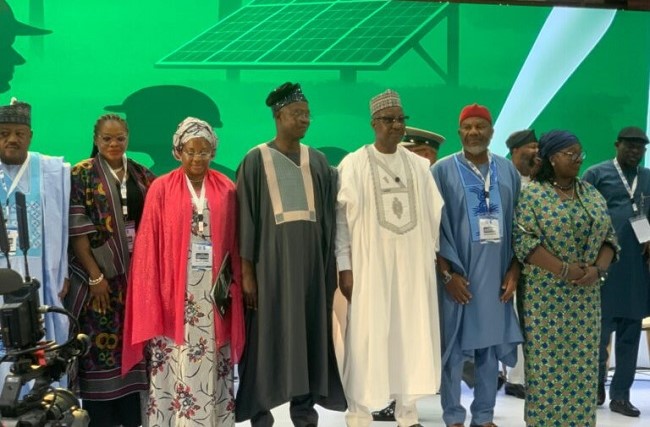The Speaker of the House of Representatives, Mr. Abbas Tajudeen, has described renewable energy as the cornerstone for global development policy.

Tajudeen disclosed this while declaring opening the First Legislative Conference and Expo on Renewable Energy on Monday, May 5, 2025, in Lagos.
The event was organised by the House Committee on Renewable Energy in collaboration with the United Nations Development Programme under the Parliamentary Development Programme.
The speaker described the conference as a significant milestone in Nigeria’s legislative journey.
“It affirms our resolve to contribute meaningfully to global energy reform and to create opportunities for economic growth, industrial innovation, and environmental resilience,” Tajudeen said.
He highlighted key legislative strides by the 10th House of Representatives to include: the creation of a Standing Committee on Renewable Energy to guide national priorities and the recent tax reform bills eliminating Value Added Tax on renewable energy and compressed natural gas, among others.
He noted that Strategic Objective 8.5 of the House Legislative Agenda prioritises the transition to clean energy through private investment incentives, public health reforms in cooking energy, and emissions reduction.
Referencing global trends, the Speaker observed that, in 2024 alone, 585 gigawatts of renewable energy were added globally – accounting for over 92 per cent of new power capacity – with $1.7 trillion invested in clean energy technologies in 2023.
“What was once considered a fringe alternative is now the backbone of global power development.
“Nigeria must align with this trend to safeguard our economy and environment,” Tajudeen said.
The Speaker commended the administration of President Bola Tinubu for passing the Electricity Act of 2023, which devolved power generation authority to sub-national entities, and for approving $1 billion in financing for rural solar expansion.
“Of this amount, $750 million has been allocated to expand solar energy access in underserved areas.
“As a result, this initiative has led to the deployment of 124 mini-grids and over 25,000 solar home systems, benefiting more than 200,000 people.
The Speaker also spotlighted Nigeria’s role in continental efforts such as the Mission 300 Initiative with the World Bank and African Development Bank, which seeks to provide electricity to 300 million Africans by 2030.
He called on all stakeholders – government, private sector, civil society – to act with purpose and clarity, stressing the importance of converting conference resolutions into actionable legislation, scalable technologies, and impactful investment.
“Let us not allow the momentum we have built to dissipate.
“This is our moment to lead, innovate, and build a sustainable energy future for Africa,” Tajudeen said.
The conference is a multi-stakeholder platform initiated by the House Committee on Renewable Energy.
It aims to foster dialogue, legislation, and partnerships to drive Nigeria’s transition to clean and inclusive energy systems.
The conference was attended by representatives of state governors and commissioners for environment from some states of the federation, among others.
By Fabian Ekeruche
